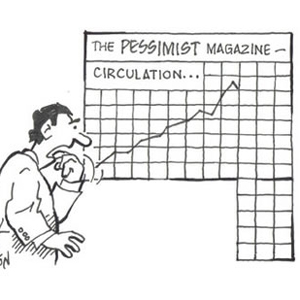I guess Adam Smith would have been pleased to learn that British banks are now putting his portrait on their banknotes. The Clydesdale Bank has been using him on their £50 note for some time and the Bank of England follows suit this spring with its £20 note. He would have noted that these are respectable, middle-value bills, not at all like the 6d banknotes which were being issued in Yorkshire in his own day and were distrusted for their inflationary tendencies, much as we might distrust the practice of charging the price of a packet of cigarettes to a credit card.
For Smith understood better than most the importance of well-managed banks and banknotes for the circulation of capital and the generation of enterprise. Indeed in the Wealth of Nations of 1776, he went out of his way to call attention to the remarkable banking boom that was helping to transform the Scottish economy and was laying the economic foundations on which the future of the new Anglo-Scottish union depended. As the Governor of the Bank of England, Mervyn King, has put it, Smith was speaking the language of the Union as well as that of Enlightenment.
The new banknote reminds us that Smith’s economics were derived from a single axiom, that the labour forces of a commercial and a hunter-gatherer society differ in that the first is characterised by an intensive division of labour that is almost entirely absent from the other – a proposition he illustrated with the example of the intensive division of labour that could be found in a modern pin-making factory, the workings of which are prettily illustrated on the new banknote. In the Wealth of Nations he works out the implications of this axiom for an understanding of the principles of economic growth and their significance for public policy in states like his own, states which were being transformed by war, commerce and the growth of empire.
Some of Smith’s more pedantic contemporaries criticised him for being unoriginal and for failing to offer much in the way of new facts about the business of trade and commerce. But that was to miss the point. Smith was writing en philosophe, taking the facts as he found them and searching for the principles on which the political economy of ancient and modern states was based. For it was only when these principles were properly understood that legislators and citizens could hope to learn how the quality of their lives and liberties could be cultivated and, as Smith liked to put it, “improved”.
Smith’s more intelligent early readers knew this perfectly well but were struck by the novelty of Smith’s method of reasoning, for it seemed to have as much to do with history as with philosophy. Thinking about wealth creation meant thinking about the so-called progress of civilisation from its hunter-gatherer, pastoral and feudal states to its commercial and pre-industrial state. It meant constructing a sort of meta-history, or, as one of Smith’s pupils described it, a conjectural history, which would show that the driving force of history was need. It is only when they feel secure that human beings indulge their natural love of improvement and wonder how their lives can be made more comfortable.
But these natural impulses had continually fallen victim to war, rebellion, capricious government and the myriad human follies that are the stuff of “real” history. In the last resort, the Wealth of Nations was Smith’s attempt to persuade the governments of his day to think of economic, social and political development as the product of natural forces which governments could obstruct and retard but never altogether destroy. For Smith, good government meant fostering the natural progress of society rather than indulging in ludicrous exercises in economic and political engineering. Modesty, philosophy and a good deal of firmness in administering the rules of justice was what was to be hoped for from enlightened modern governments.
But what makes Smith’s great book such a formidable essay in philosophical reasoning is that his account of the political economy of a modern state is built on and meshed into an understanding of its moral economy which is both profound and lightly worn. He had been professor of moral philosophy at Glasgow from 1752 to 1764 and had developed a remarkable curriculum which asked students to consider how needy and self-regarding human beings acquire the moral, political and aesthetic understanding they need if they are to live sociably. In Smith’s hands this became a story about socialisation and social exchange, about the never-ending search for the sort of social and self approval which will make it possible for us to live at ease with ourselves and others and enjoy that state of “mutual sympathy” which is the source of the greatest pleasures we can hope to enjoy.
It is a form of social exchange that involves trading sentiments with each other, “tuning up and tuning down” our responses to others in the hope of concluding a rewarding moral deal. In Smith’s philosophy, economic markets and moral markets work in the same way because human beings are all traders at heart, spending their lives trading sentiments as well as goods and services. Trading is the skill on which our survival, understanding and happiness depend. Indeed it is as the result of trading that we come to know ourselves. It is this understanding about the principles of human nature which gives the Wealth of Nations its philosophical depth and timeless relevance.■
Nicholas Phillipson is Honorary Research Fellow in the School of History and Classics at Edinburgh University. He is working on an intellectual biography of Adam Smith

